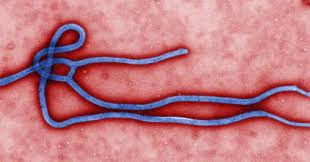The World Health Organisation has said the outbreak of the Ebola virus disease which spread to Uganda from neighboring Democratic Republic of Congo is not a global health emergency.
In a statement on Friday, WHO said although the outbreak remains controlled, robust funding is required to prevent it becoming a global emergency.
Ebola, a hemorrhagic fever is a highly infectious virus that causes fever, body aches, and diarrhea, and sometimes bleeding inside and outside the body.
On Thursday Uganda repatriated one Ebola patient and four others suspected victims to DRC.
The repatriated patient is a 3 year old brother to the first confirmed Ebola case who died on Wednesday.
The others repatriated are the mother and father of the deceased patient, a six month old baby and the family maid,
In a statement Uganda’s Health minister Dr Jane Ruth Aceng noted that the DRC Ebola response team proposed to repatriate the patient and suspects to enable them access medicines for therapeutic treatment which are available in that country as well as receive family support and comfort since they had six other relatives who had remained behind in DRC some of whom had also been confirmed positive.
She said the repatriation was on condition that the patients and their relatives consented and willingly accepted to go to the DRC.
According to the health ministry after the repatriation there is currently no confirmed case of Ebola in Uganda.
The ministry however, says 3 suspected cases not related to the deceased index case remain in isolation at Bwera hospital Ebola Treatment Unit.
Their blood samples have been sent to Uganda Virus Research Institute (UVRI) and results are pending.
The health ministry has assured that Uganda remains in Ebola response mode to follow up the 27 contacts of the deceased index case and the three suspected cases.
The Ugandan Health Ministry said there were three confirmed cases of Ebola in the country.
WN/as/APA


